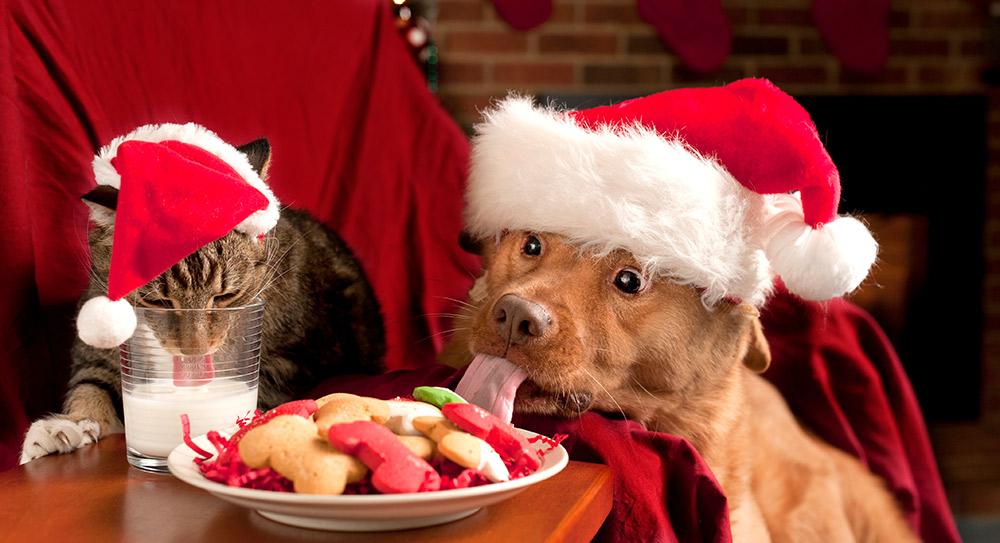
Special to the Booster
Holidays bring families and friends together, but can also mean potential hazards for pets. Table foods, ornaments, and other holiday items can be harmful to cats and dogs. Every year veterinarians at the LSU Veterinary Teaching Hospital see an increase in a variety of digestive diseases during the holiday season.
The holidays are a great time to cook with and enjoy chocolate; however, chocolate is very toxic to pets and can cause gastrointestinal, cardiovascular and neurologic disease including vomiting, rapid heart rate, high blood pressure, overexcitation, and seizures. If you think your dog may have ingested chocolate, signs to watch for include vomiting, diarrhea, lethargy, agitation, increased thirst, an elevated heart rate and in severe cases, seizures.
Table food can cause dogs to suffer from acute gastroenteritis (an inflammation of the stomach and intestines) or pancreatitis. In both diseases, dogs experience severe vomiting, diarrhea, abdominal pain, and listlessness. Bones may lead to obstructions in the esophagus, the stomach, or the intestine and lead to severe digestive signs. Furthermore, grapes, raisins and onions are foods that dogs and cats should not receive. They are toxic to pets and can cause potentially fatal diseases, such as acute kidney failure, anemia, or seizures. Most ornamental plants (e.g., poinsettias, mistletoes, holly, etc.) can cause stomach upset.
Decorating your home is a lot of fun, but not if you pets consume any of it. Many decorations usually involve electrical cords, so please check to make sure that your pets are not chewing on them, as electric shock may have devastating consequences.
Also, some pets may try to eat batteries, so please make sure that they are put away safely.
The weather in December and January can be quite chilly, even in Texas. So, please remember to bring your outside pets inside overnight if a hard freeze is forecast.
If your pet becomes sick or if you think that it may have ingested something harmful, contact your veterinarian immediately. Delays in seeking veterinary help may seriously complicate the problem.
Other good resources are the ASPCA’s Animal Poison Control at http://www.aspca.org/pet-care/animal-poison-control or the Pet Poison Helpline http://www.petpoisonhelpline.com/. Help is available through these websites and their respective phone numbers 24 hours a day.
Consider gifting your pet with pet insurance this holiday season. There are a variety of options that suit many different family situations: https://www.petinsurancequotes.com/pet-insurance/american-animal-hospital-association.html. Please help make this a safe and happy holiday season for all of the members of your family.








Comment
Comments